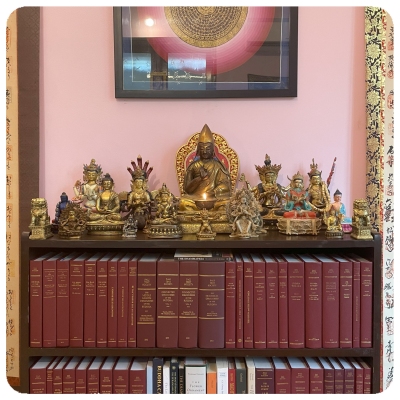
Zen Buddhism
Also available through:
or through the RSS feed.
According to legend, Chan Buddhism has its origin in a teaching of Lord Buddha which only Mahākāśyapa understood, when Lord Buddha held up a flower but didn’t say anything. It was passed down over the centuries until eventually Bodhidharma brought it to China from India.
More likely, though, Chan Buddhism first developed in China around the 6th century. It was a synthesis of Mahayana Buddhism and Taoism. Chan means “meditation.” Specifically, it is the Chinese word for Dhyana, the Sanskrit word for which the English word “meditation” is used.
In the 13th century, Master Dogen traveled from Japan to China and stayed in a Chan Buddhist temple for several years. He returned to Japan and began teaching it there where it flourished, but came to be pronounced “Zen” in Japan.
After reading Tipitaka, the early Mahayana Sutras, the commentaries of the Theravadin scholar-monks, the later Mahayana Sutras, and the Vajrayana teachings of Tibet and Japan, Edward will then recite many of the teachings of Chan/Zen Buddhism.
Now and then, though, as it is a subject of much interest, Edward does dedicate an episode here and there to the teachings of Zen. In particular, writings and transcribed lectures of Master Dogen, which you can find here:

禅 Zen (2009) - Reaction & Review
[01:35:04] February 29th, 2024
In this Special Episode of Buddhist Books Podcast, we'll be watching Banmei Takahashi's 2009 film, "Zen."
"Zen" is a historical bio-pic about Zen Master Dogen, who first brought Chan Buddhism from China to Japan, becoming the founder of the first Japanese Zen sect in the early 13th century.
•

Buddhist Books: Fukanzazengi
& One Year Anniversary Episode!
[01:09:12] December 5th, 2022
This is a special episode in which we'll take a look at the past year of the Buddhist Books Podcast since it began on December 5th, 2021.
I'll also be reciting Eihei Dogen's "Fukanzazengi" or "Universal Recommendation for Sitting Meditation," which he wrote in 1227 CE.
•
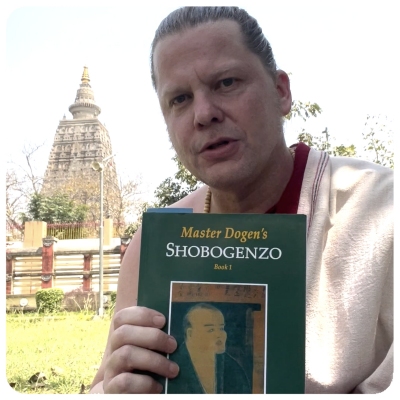
HEART SUTRA (Dōgen's Commentary)
[00:29:34] March 22nd, 2022
This is a special episode because, rather than being filmed in my office in Delhi, it is filmed in Bodh Gaya with Mahabodhi Temple just behind me.
In today's episode, we briefly jump ahead on the timeline from the early Theravada schools of Buddhism to Master Dogen bringing Soto Chan into Japan in the 13th century and, because of his accent, calling it "Zen." In other words, it was the beginning of what could be called "Japanese Zen."
One of the very few chants that are performed by the Zen Monks of Japan is that of the Hannya Shingyo. Dōgen believed it to be such an beautiful expression of the core and essence of the teachings of Lord Buddha, as well as being short and to the point, that chanting it was as much a tradition in early Zen as it was in Shingon, Tendai, and the various other schools of Japanese Buddhism.
Shobogenzo is a collection of lectures given by Dōgen to the monks of those earliest Zen Monasteries. The second "chapter" of Shobogenzo, in other words the second of his lectures recorded there, is one which he gave in the Temple which would later be known as Kōshōhōrin-ji, in Kyoto, in the summer of 1233 on the subject of The Heart of Great Wisdom Sutra, or Hannya Shingyo. In today's this episode, we'll read this lecture.
•

Zen Buddhism - Part 4
[01:36:29] September 29th, 2024
This is part 4 of the “Zen Buddhism” series on Buddhist Books Podcast. In this episode, we’ll be reading the first lecture recorded in Eihei Dōgen’s “Shobogenzo” entitled “Bendowa,” which he wrote in 1231.
•

Zen Buddhism - Part 5
[00:22:45] November 16th, 2024
This is part 5 of the Zen Buddhism series on Buddhist Books Podcast. In this episode, we’ll be reading Eihei Dōgen’s 'Shobogenzo' the chapter entitled "Genjo-Koan" meaning "The Realized Universe" which he wrote in 1233.
•

Zen Buddhism - Part 6
[00:30:16] December 26th, 2024
This is part 6 of the Zen Buddhism series on Buddhist Books Podcast. In this episode, we’ll be reading Eihei Dōgen’s 'Shobogenzo' the chapter entitled “Ikka-No-Myoju” meaning "One Bright Pearl" which he wrote in 1238.
•

Zen Buddhism - Part 7
[00:27:32] April 5th, 2025
This is part 7 of the Zen Buddhism series on Buddhist Books Podcast. In this episode, we’ll be reading Eihei Dōgen’s 'Shobogenzo' the chapter entitled “Ju-Undo-Shiki” meaning "Rules for the Hall of Heavy Cloud" which he wrote in 1239.
•

Zen Buddhism - Part 8
[00:28:41] May 6th, 2025
This is part 8 of the “Zen Buddhism” series on Buddhist Books Podcast. In this episode, we’ll be reading Eihei Dōgen’s “Shobogenzo” the chapter entitled “Soku-Shin-Ze-Butsu” meaning "Mind Here and Now Is Buddha" which he wrote in 1239.
•

Zen Buddhism - Part 9
[00:34:16] June 8th, 2025
This is part 9 of the “Zen Buddhism” series on Buddhist Books Podcast. In this episode, we’ll begin reading "The Platform Sutra" of the Sixth Patriarch of Zen (Chan) Buddhism, thought to have been composed around 780 CE.
•

Zen Buddhism - Part 10
[00:46:06] July 15th, 2025
This is part 10 of the “Zen Buddhism” series on Buddhist Books Podcast. In this episode, we’ll be reading Eihei Dōgen’s “Shobogenzo” the chapter entitled “Senjo” meaning "Washing" which he wrote in 1239.
•
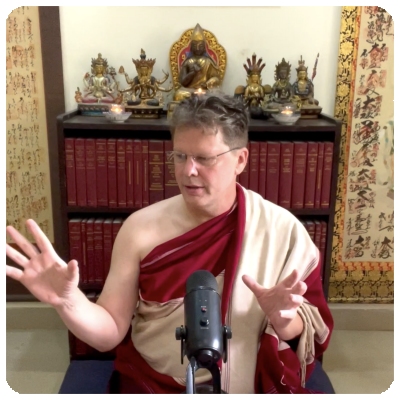
Zen 11: The Platform Sutra • 2
[00:45:42] August 7th, 2025
This is part 11 of the “Zen Buddhism” series on Buddhist Books Podcast. In this episode, we’ll continue reading "The Platform Sutra" of the Sixth Patriarch of Zen (Chan) Buddhism, thought to have been composed around 780 CE.
•
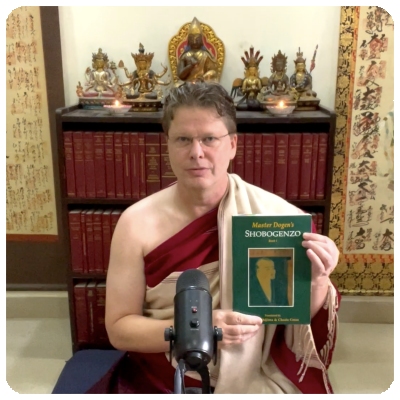
Zen Buddhism - Part 12
[00:59:44] September 11th, 2025
This is part 12 of the “Zen Buddhism” series on Buddhist Books Podcast. In this episode, we’ll be reading Eihei Dōgen’s “Shobogenzo” the chapter entitled “Raihai-Tokuzui” meaning "Prostrating to Attainment of the Marrow" which he wrote in early April of 1240 C.E.
•

Zen 13: The Platform Sutra • 3
[00:44:18] October 27th, 2025
This is part 13 of the “Zen Buddhism” series on Buddhist Books Podcast. In this episode, we’ll continue reading "The Platform Sutra" of the Sixth Patriarch of Zen (Chan) Buddhism, thought to have been composed around 780 CE.
•
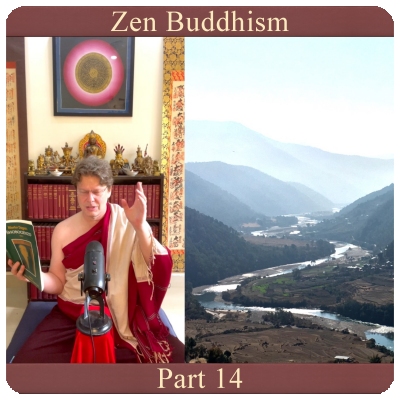
Zen Buddhism - Part 14
[00:59:54] November 28th, 2025
How to hear the Sutras in the sounds of a passing river.
•
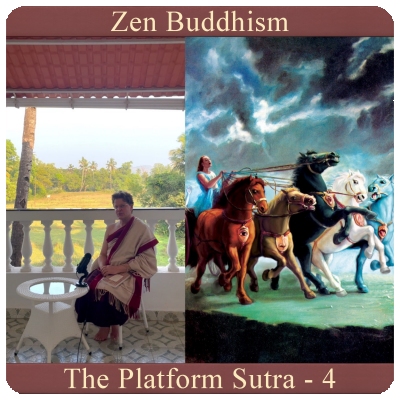
Zen 15: The Platform Sutra • 4
[00:32:40] December 23rd, 2025
•
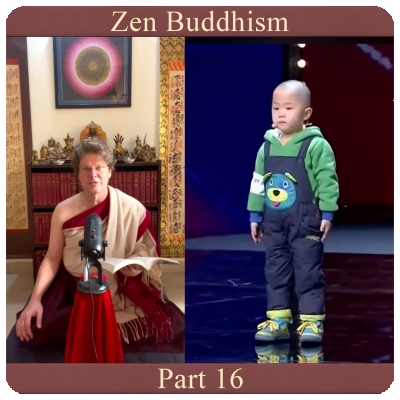
Zen Buddhism - Part 16
[00:50:47] January 23rd, 2026
In which Dogen disses the guy in that Allen Ginsberg poem.
•
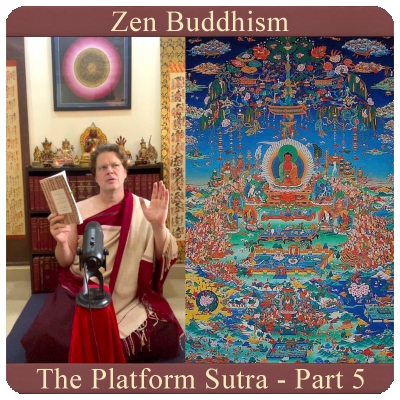
Zen 17: The Platform Sutra • 5
[00:32:27] February 14th, 2026
It turns out The Kingdom of Heaven and The Western Pure Land may have a few things in common...
•
Most Recent  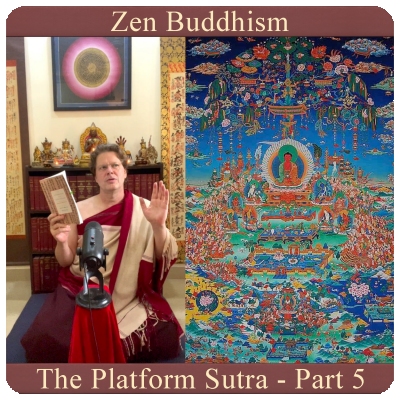 |
 |
First Episode   |
CHAPTERS
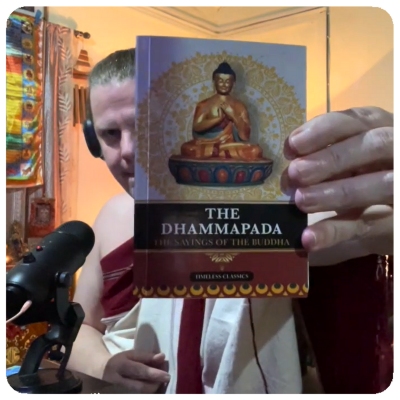 |
 |
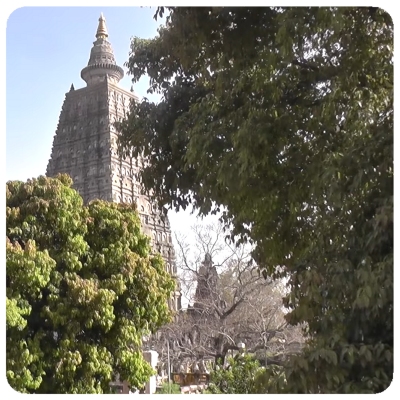 |
 |
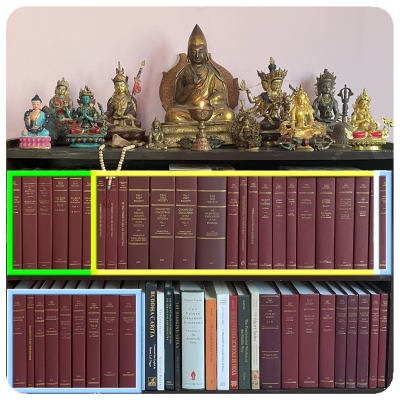 5. TIPIṬAKA |
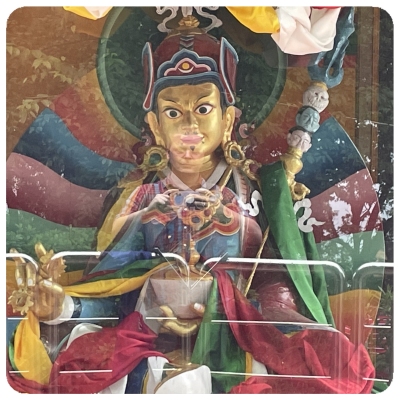 6. PADMASAMBHAVA |
 7. SHINGON |
 8. ZEN |
 Special Episodes |
 Behind The Scenes |
     
|
